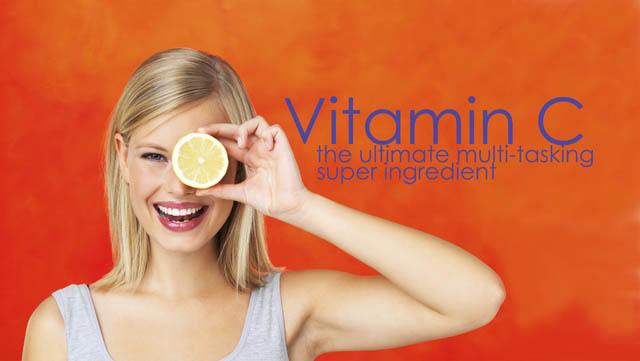Scientifically Speaking: Helping Your Heart
 In case you weren’t aware, February is American Heart Health Month — 28 days dedicated to taking a closer look at the hardest working muscle in your body.
In case you weren’t aware, February is American Heart Health Month — 28 days dedicated to taking a closer look at the hardest working muscle in your body.
Did you know that your heart can pump up to 2,500 gallons of blood each day, or that your heart has the ability to beat more than three billion times throughout your life? Yeah, you might say the heart does its fair share of work.
And because the heart does so much for your body, return the favor by brushing up on the best, scientifically proven ways to keep your heart protected.
Value in Vitamin C
In a recent report titled Critical Reviews in Food Science and Nutrition, researchers from the Linus Pauling Institute at Oregon State University say that the current recommended daily allowance (RDA) of 75 milligrams of vitamin C for women and 90 milligrams for men isn’t sufficient.
“We believe solid research shows the RDA should be increased,” says Dr. Balz Frei, director of LPI. “A 200 milligram intake of vitamin C on a daily basis poses absolutely no risk, but there is strong evidence it would provide multiple, substantial health benefits.”
The report notes that, “Higher levels of vitamin C could help reduce the chronic diseases that today kill most people in the developed world — heart disease, stroke, cancer, and the underlying issues that lead to them, such as high blood pressure, chronic inflammation, poor immune response, and atherosclerosis.”
Fiber is Your Friend
Most of us know that fiber is associated with numerous health benefits, but certain research suggests how, over time, fiber can be used as a preventative measure for certain cardiovascular diseases.
In an article published online at PLOSone.org, a group of researchers examined, among other things, the association between the intake of dietary fiber and the prevalence of ischemic cardiovascular disease (iCVD) in both men and women. Information was collected from thousands of participants in a wide range of ages, and scientists followed up with them after a mean of 13.5 years. Results of the study concluded that, “High fiber intakes were associated with lower incidence rates of iCVD in women and of ischemic stroke in men.”
The Power of Flavonoids
Flavonoids, or bioflavonoids, are plant-based compounds with powerful antioxidant properties, which means they reduce inflammation, promote healthy arteries, and help fight aging by preventing — and repairing — cellular damage. Flavonoids may also protect against cardiovascular disease.
In a study published in the American Journal of Clinical Nutrition, researchers examined the relationship between flavonoid intake and cardiovascular disease (CVD). After following 38,180 men and 60,289 women over a seven-year period, the researchers concluded that, “Flavonoid consumption was associated with lower risk of death from CVD. … suggesting that even relatively small amounts of flavonoid-rich foods may be beneficial.”
Foods that are rich in flavonoids include apples, blueberries, broccoli, cabbage, onions, strawberries, red grapes, red wine and tea.
Explore for Yourself
There’s plenty of research on the topic of heart health. But it doesn’t do any good if it’s not studied and shared by healthy individuals like you.
American Heart Health Month is intended to get you thinking and remind you of the importance of a healthy heart. So don’t hold back — hop on the computer and research to your heart’s desire.
The information and studies found in this story are featured in Volume 1 of the USANA magazine in the “Better Living Through Science” series. Be sure to check out the article for even more tips on keeping your heart healthy.










Thank you for the valuable information about Vitamin C and heart health. Proflavanol with grapeseed extract and Vitamin C not only helps as an anti-inflammatory but also with heart health. Yeah USANA!
I’m 37 years old my hair is constantly falling and I’m starting to get black spots in my face. I wanna what can I take for this?
What we do without our scientist as they explore in finding what always went wrong to our body that we have to take care of and we neglect. Thank you for your endless research.
Top five regrets of the dying. 1. I wish I’d had the courage to live a life true to myself, not the life others expected of me. 2. I wish I hadn’t worked so hard.
3. I wish I’d had the courage to express my feelings. 4. I wish I had stayed in touch with my friends. 5. I wish that I had let myself be happier. – USANA living life.